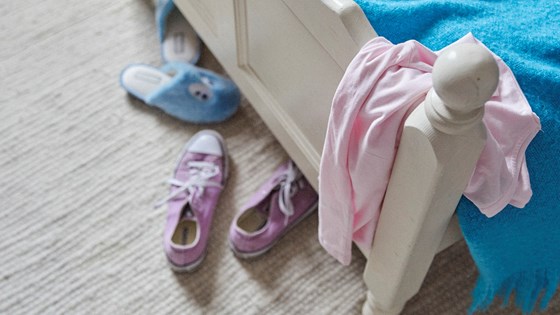Why do periods happen?
Periods are part of your menstrual cycle. This is when your body prepares for the possibility of getting pregnant.
Each month one of your ovaries releases an egg. The egg travels down 1 of 2 tubes called fallopian tubes and into your womb.
The lining of your womb thickens for a short while during this time. If the egg is fertilised by sperm, it will stick in this lining and grow. This is how you get pregnant.
If the egg is not fertilised, then the lining of the womb breaks down and passes out of your body through your vagina as a small amount of blood — this is called a period.









